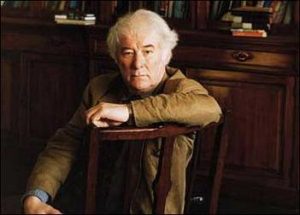What course did you study at Queen’s?
I went to Queen’s University in 1984, studying for a Degree in English & French. I’ve always been more of a words person than a numbers person, so I was naturally drawn to the Arts and Humanities. Literature, language and expression offer us the chance to explore our very humanity. They allow us to discover what makes us ‘us’, to delve into look into our reason, our creativity and our imagination.
Were you concerned about your ‘limited options’ regarding careers as an AHSS student?
Not at all. I believed then and I still believe today that there exists a world of opportunity for those whose skills and ambition can be channelled towards language and literature. There isn’t a major business or government department that doesn’t rely on communication and social connectivity. The message is important, and how it is said is equally important. As a young student I had a fascination for news and journalism, and I felt that I could carve out a career in this area. I started out in local newspapers then moved into television news with UTV. In broadcasting where pictures are sacred, the spoken word must support and complement. However, TV journalism actually makes great demands on one’s writing: conveying the maximum information with clarity and interest, and in a form that should be easily understood by young and old alike.
What does your job really entail?
I am news correspondent with UTV, one of the senior journalists. My role involves reporting on a variety of topics: it may be politics one day, and the economy the next. Often I find myself reporting on serious court cases or attending crime scenes.
At all times, however, the requirement is for accuracy, and stories that involve tragic incidents must be handled with sensitivity and care. I believe it is a role where it is absolutely essential to be a natural communicator – not simply because one must be a story-teller, but because one must build up relationships and trust with the viewer.
Some maintain you have the ‘dream job’ – but is it really as glamorous as many believe?
Those who think being a television journalist is glamorous clearly haven’t stood in the cold lashing rain for hours, waiting for a story to develop. Nor can they have visited the scene of a bombing or a murder and watched people’s lives being torn apart. It is always a difficult part of the job – seeing the horror at first hand but having to filter out the truly dreadful images because they are simply too gruesome for a television audience. Thankfully such incidents are rare (and increasingly so), but they are indelibly imprinted on my memory and they inform my reporting. There are, of course, many enjoyable moments.
Television journalism may not be glamorous, but it is nevertheless a huge privilege. I get to be an eyewitness to extraordinary events, I get a ringside seat on history, and I get to meet remarkable individuals – US presidents and UK prime ministers, Nobel prize-winners, movie actors and pop stars, artists and scientists, international footballers, the list goes on. But it is the courage and dignity of those battling illness or disability that always impresses me most.
Any particular highlights of your career?
I have been lucky to work with very many talented people – technicians, producers, journalists. I have been lucky to win regional, national and international awards for my work, but the highlight of my career was having the chance to enjoy several meetings with Seamus Heaney. This great poet has always been my hero, and to get the opportunity to talk face-to-face about his life and work was something I shall always cherish. Heaney was the man who instilled in me a love of language, writing and place.
For those aspiring journalists, do you have any advice you’d like to offer?
Never give up. If you have the drive and the ability, then keep on trying and your break will come. Don’t do it because you “want to be on TV”. Do it because you are interested in your world, your community and your fellow humans. Do it because good journalism is important: it is vital to hold governments to account, to expose wrong-doing, to challenge and to question. Do it because you love writing and you have an inquisitive mind. Do it because words matter. (KMcF)





I conceive this web site has got some real good information for everyone